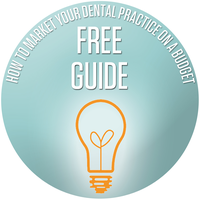
Learn about breach prevention best practices.
Are you concerned about your patients' sensitive data? Cybercrime is a topic that makes headlines far too often. Healthcare data breaches have affected 39 million people so far in 2023. You don't want your practice to be next!
Key Takeaways:
- Data breaches give hackers access to sensitive data - payment details, personal health information.
- IT breaches and human error are the most common causes of hacking.
- HIPAA will guide your digital data policies. You should be using secure email, private networks, and encrypted messages.
- You need procedures for how to avoid data breaches, and for notifying patients and appropriate authorities.
The risk and cost of a data breach has continued to go up each year for the last decade-plus. And technology continues to change the way we operate. So, it's crucial for dental practices to adapt and understand how to avoid data breaches.
Your practice has a responsibility under HIPAA and the Breach Notification Rule. You must secure all patient data and protected health information (PHI).
The consequences of a data breach can be devastating. These breaches lead to monetary loss, as well as damage to the trust and reputation you've spent time building with patients.
Dental practices and medical providers are becoming a frequent target due to the trove of data stored. Cyber criminals can use this medical and personal information to commit blackmail or theft using personal and financial information. With that in mind, we will explore how you can safeguard patient privacy while maintaining a thriving practice of any size.

Data breaches put your practice and patients at risk.
Dental data breaches occur on a large scale. Up to one million patient records are compromised in many cases. The records can include PHI, Social Security number, and driver's license number.
A data breach can happen to offices and organizations of any size. Even the ADA is not immune to having their data compromised.
As a dental office manager or staff member you hold the key to safeguarding your practice and patients. You can be effective by being vigilant in managing the lurking threat of a data breach.

Common causes of data breaches
It is imperative for the success of your practice to look for weaknesses in your software. 78.5% of healthcare data breaches reported in 2022 were due to hacking or IT breaches. Understanding the common causes can help you find the potential problem areas in your systems and implement appropriate safeguards.
- Human error: Nine in 10 data breaches are said to be caused by employee mistakes. Employees may expose sensitive information without even knowing. This can happen by misplacing physical files, sending emails to the wrong recipients, or through an email phishing attack.
- Inadequate security measures: Outdated software, weak passwords, and unencrypted data are like open invitations to exploit system loopholes. Without strong measures in place, dental offices become easy targets for a security breach.
- Targeted cyberattacks: Hackers target dental practices for several reasons. It can be due to the size of the operation, or the value of the confidential information stored. These attacks involve sophisticated techniques like malware, ransomware, or social engineering.

Understanding HIPAA to prevent data breaches.
HIPAA sets the standard for protecting sensitive patient data. When it comes to digital data, you need to implement administrative, physical, and technical safeguards.
When transmitting PHI, dental offices should use secure email systems, virtual private networks (VPNs), and encrypted messaging platforms. These systems ensure you are protecting patient data any time you transmit it. Dental offices should have a risk of a data breach report and a documented response plan. It needs to outline the steps taken in the event of a breach.

Key steps to secure patient data
Your dental office will need to have a solid foundation for how to avoid data breaches.
At your practice you may be using multiple third-party software systems. There are countless programs for patient communication, imaging, and system backups. For the utmost data security, you will want to minimize your reliance on multiple programs.
If you do keep paper documentation of patient records, you will need to have procedures in place to physically monitor it. It needs to be securely locked away and kept safe from damage like floods.
Make sure all your digital programs are secured using these methods below:
- Password policies: Dental staff members should use strong passwords (combining numbers, letters and special characters). They should also have a different password for each system. Two-factor validation is also recommended for an extra layer of protection. This involves getting a unique code to your mobile device or email each time you login to a system.
- Data encryption: Your dental practice should conduct a risk analysis to identify how susceptible your software is to a cyber-attack. Encryption will transform patient data into an unreadable format. You will need to make sure your software uses the industry-standard AES (or Advanced Encryption Standard). Encrypting this data ensures all patient information stays confidential and complies with HIPAA regulations.
- Train employees on best practices: There should be guidelines and procedures for managing patient data. It should cover internal and external communication. Topics should include how to detect suspicious emails, social engineering tactics, safely using social media and keeping your desk organized.
- Updating software and systems: Dental practices need to invest in modern systems and software. This will help prevent cyber criminals gaining access to secure information. These include firewalls and antivirus software. You should also regularly review and update your security policies and procedures.
- Regular risk assessments and audits: You need to review access controls, data storage and transmission practices. You should also identify weaknesses in physical security. It’s worth considering third-party audits to validate your security practices.
- Creating a response plan for data breaches: With a clear response plan you can be better prepared for a breach. You will need to notify your patients, report to the appropriate authorities, and coordinate with legal counsel if necessary. Having designated staff members for data breaches will also make an enormous difference.
- Data breach insurance: Data breach insurance provides even more protection for dental offices. Think of it on the same level of importance as malpractice liability and property coverage. It can help mitigate the monetary impact on your practice and provide support for the recovery process.
In an era where cyber threats and data breaches are becoming increasingly common, prevention is key. Investing in data protection today can save your dental practice from the consequences of a data breach tomorrow.
Want to join the Solstice network?
Connect with our dedicated provider relations team for more information about joining our network. You can call 1.877.760.2247 or email providerrelations@solsticebenefits.com.
Already in the Solstice network?
Search to see if you're part of the Solstice dental PPO or HMO network. You can also go to https://www.mysolstice.net/ or call us at 1.877.760.2247.



